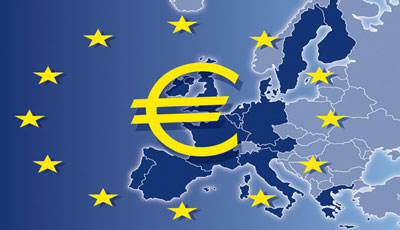The current-account deficits in the euro zone's crisis countries were of the worrying kind. That they have shrunk or reversed is comforting.
歐元區(qū)危機國家的經(jīng)常賬戶赤字是屬于讓人擔心的那一種。他們的赤字已有收縮,趨勢扭轉(zhuǎn)也令人欣慰。
This has happened largely through increases in exports, suggesting that competitiveness has improved.
這種現(xiàn)象主要發(fā)生在增加出口的過程中,意味著競爭力提高了。
(Much of Ireland's huge surplus reflects multinationals domiciling their intellectual property in the country
(愛爾蘭巨額盈余反映出跨國公司選擇在愛爾蘭對他們的知識產(chǎn)權進行注冊
to take advantage of its low corporate taxes, boosting its exports.)
以此享受這個國家低額的公司稅,促進其出口。)
In Greece, where eight years of crisis and austerity have squeezed consumption and investment,
在希臘,八年危機和緊縮壓榨了國家的消費和投資,
imports have borne a greater part of the adjustment. They are more than 25% lower than in 2007.
進口也受到大調(diào)整。相比2007年,出口減少超過25%。
The adjustment was particularly painful because, as members of a single-currency bloc with low inflation,
調(diào)整尤為痛苦,因為作為低通貨膨脹單一貨幣區(qū)成員,
crisis-hit countries had to devalue their real exchange rates by cutting wages and domestic demand and employment.
遭遇危機的國家不得不通過降低工資、國內(nèi)需求以及就業(yè)來貶值他們的實際匯率。
And the zone's growing aggregate surplus points to another exacerbating factor: Germany's excess of saving over investment kept rising,
該區(qū)域增長的總盈余指向了另一個激發(fā)因素:由于德國向歐元區(qū)以外的國家增加貸款和出口,
as it increased lending and exports to countries outside the zone.
德國儲蓄超過投資的部分還在繼續(xù)增長。

If instead Germany had expanded domestic demand, others' relative price adjustments could have been less painful.
如果德國擴大國內(nèi)需求,那么其他相對價格調(diào)整或許就沒有那么痛苦了。
A paper by Olivier Blanchard, Christopher Erceg and Jesper Linde, published in 2015,
奧利維爾·布蘭查德、克里斯托弗以及杰斯珀·林德于2015年發(fā)表的論文發(fā)現(xiàn)
finds that higher German inflation could make other countries' goods and services relatively cheap, making it easier for crisis countries to adjust.
德國更高的膨脹可能會讓其他國家的商品和服務相對便宜,使其他危機國家的調(diào)整更加容易。
The effect is particularly strong when interest rates have to remain low to stimulate the economy.
在需要將利率維持在低水平以刺激經(jīng)濟的情況下,這種效果尤為強烈。
Some German economists, notably at the Bundesbank, have long argued that this is irrelevant:
一些德國經(jīng)濟學家,尤其是德國中央銀行的經(jīng)濟學家一直以來都爭辯稱兩者之間毫不相干:
it is up to profligate southerners, not prudent Germans, to adjust; and fiscal expansion will not boost demand for euro-area imports directly.
調(diào)整取決于恣意揮霍的南方人,而非節(jié)儉的德國人;并且財政擴張不會直接促進歐元區(qū)的進口需求。
譯文由可可原創(chuàng),僅供學習交流使用,未經(jīng)許可請勿轉(zhuǎn)載。












